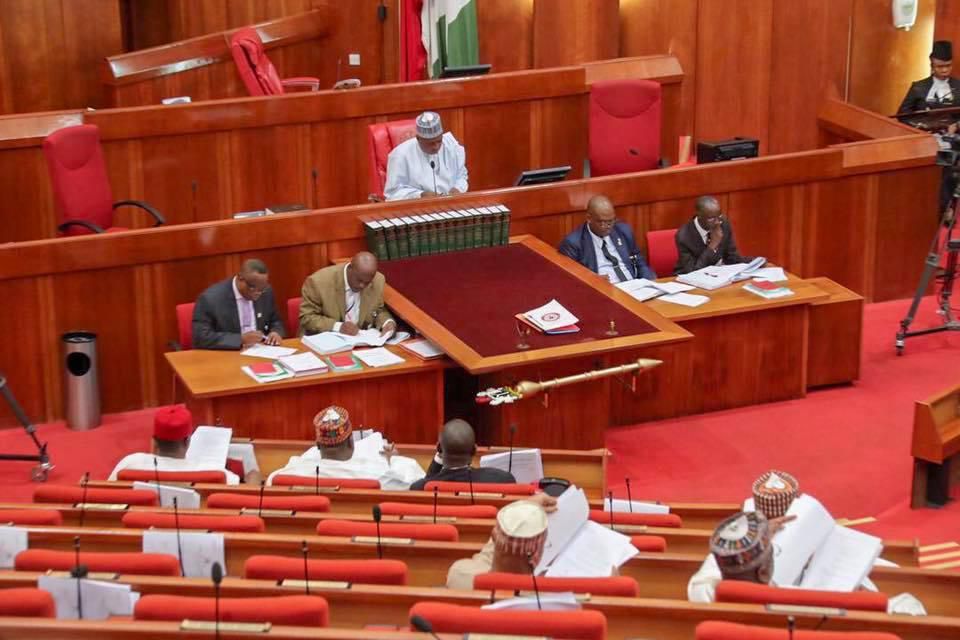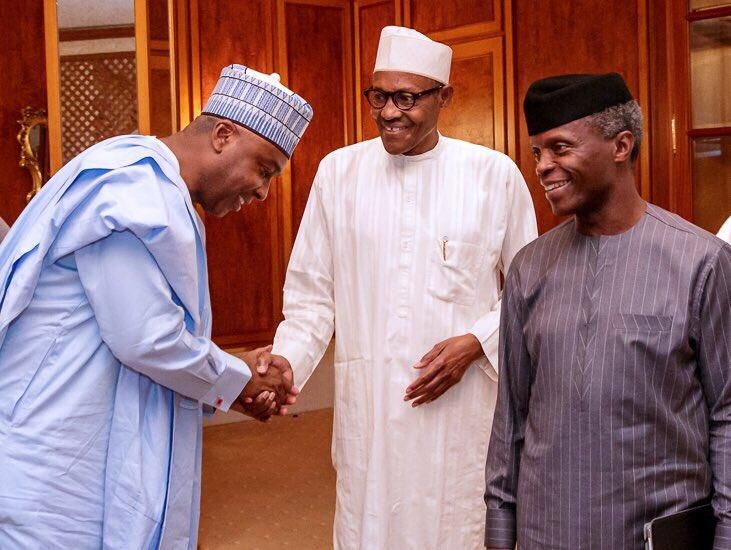This is why President Buhari refused to sign Electoral Amendment Bill for the 4th time in 2 years
)
On December 6, 2018, President Buhari declined assent to The Electoral (Amendment) Bill, which was recently passed by the National Assembly.
What is this electoral amendment bill and why is it such a big deal?
This article explains why the president’s refusal to sign the electoral amendment bill is being talked about by everyone at the moment.
What is the Electoral Amendment Bill?
It is a bill that essentially seeks to amend the election laws of Nigeria, otherwise called Electoral Act.
The Electoral Act is a piece of legislation that guides how Nigeria conducts its elections. The Electoral Act also guides how the Independent National Electoral Commission (INEC) handles its operations and how members of staff of INEC go about the business of conducting elections for States and the federal government.
This is not the first time Nigeria is amending its Electoral Act. The Electoral Act has previously been amended in 2004, 2006 and 2010 by parliament as the nation seeks to strengthen and improve conduct of elections which is the backbone of any democracy.
When did the Saraki led 8th National Assembly begin work on the Electoral Amendment Bill?
According to Senate President Bukola Saraki, the 8th NASS (National Assembly) began work on the electoral amendment bill in 2016.

“We started work on this law since 2016 to prevent a situation where it would become part of the election controversies. What we have done with that bill is to raise the level of transparency, credibility and acceptability of our electoral process.
“We made sure that if the law is assented to and honestly applied by INEC and all those concerned, it will give us an election that will be better than what we had in 2015", Saraki says.
So, why did President Buhari refuse to sign?
In a letter addressed to Speaker of the House of Representatives, Rt Honourable Yakubu Dogara, on December 6, 2018, President Buhari said “pursuant to Section 58(4) of the Constitution of the Republic of Nigeria 1999 (as amended), I hereby convey to the House of Representatives, my decision to decline Presidential Assent to the Electoral (Amendment) Bill 2018 recently passed by the National Assembly”.
Buhari said he was withholding his assent because he is “concerned that passing a new electoral bill this far into the electoral process for the 2019 general elections which commenced under the 2015 Electoral Act, could create some uncertainty about the applicable legislation to govern the process. Any real or apparent change to the rules this close to the election may provide an opportunity for disruption and confusion in respect of which law governs the electoral process”.
Buhari was essentially saying that it is too close to the election to change the rules of the game, because doing so would leave election officials and voters confused.
Buhari also cited drafting issues as another reason why he can’t affix his signature on the electoral amendment bill.
The president wrote that: “It is also important for the following drafting amendments to be made to the bill:
a) Section 5 of the bill, amending section 18 of the Principal Act should indicate the subsection to which the substitution of the figure “30” for the figure “60” is to be effected.
b) Section 11 of the bill, amending Section 36 should indicate the subsection in which the proviso is to be introduced.
c) Section 24 of the bill which amends Section 85(1) should be redrafted in full as the introduction of the ‘electing’ to the sentence may be interpreted to mean that political parties may give 21 days’ notice of the intention to merge, as opposed to the 90 days provided in Section 84(2) of the Electoral Act which provides the provision for merger of political parties.
d) The definition of the term “Ward Collection Officer” should be revised to reflect a more descriptive definition than the capitalized and undefined term “Registration Area Collation Officer”.
Presidency sources have told Pulse that Buhari also had a problem with a provision in the bill that gave the polling electoral officer the power to just “announce” results. The extant Electoral Act said the polling officer should “count and announce” results.
The presidency saw the “announce” results clause as providing room for vote manipulation and rigging.
Another reason why the presidency declined assent has to do with the “electronic transmission of results” clause. Buhari campaign spokesperson, Festus Keyamo, said on ChannelsTV that “electronic transmission of results” across Nigeria won’t work at the moment because most parts of the country--especially rural areas--still have no access to the internet.
Was the bill rejected by Buhari because of the card reader?
No, not at all. The card reader was actually brought back into the bill after President Buhari noticed its absence the last time out and told lawmakers to insert same.
Electronic voting doesn’t equate smart card reader even though the latter is a component of the former.
Electronic voting means that the entire registration, accreditation, vote counting, collation and announcement chain would be achieved electronically.

Nigeria still doesn’t practice electronic voting because collation, counting and announcement are still being achieved manually. At best, the only electronic component of the vote process at the moment is the smart card reader which is used for authentication or accreditation.
With the rejection of the bill, Buhari is also saying, look, it is too early to implement electronic voting nationwide because elections are only two months away.
So, the card reader wasn’t one of the reasons why the bill was rejected and card readers would be used in 2019 anyway.
How many times has the president rejected the electoral amendment bill from the national assembly?
This is the fourth time President Buhari would be refusing his assent to the bill.
Buhari had previously withheld assent to the bill, citing the hijack of the powers of INEC and the reordering of the sequenceof elections by parliament.
So, what happens now that Buhari has rejected the bill?
Two things are possible from this point:
1. The lawmakers go back to work on the bill and insert Buhari's input.
2. Snub the President, override his veto with two-thirds of votes and make the bill law.
![Aisha blows hot on Security forces; Y7ou won't believe what she said [VIDEO]](https://image.api.sportal365.com/process/smp-images-production/pulse.ng/17082024/1f976edf-1ee2-4644-8ba1-7b52359e1a8f?operations=autocrop(640:427))
)
)
)
![Lagos state Governor, Babajide Sanwo-Olu visited the Infectious Disease Hospital in Yaba where the Coronavirus index patient is being managed. [Twitter/@jidesanwoolu]](https://image.api.sportal365.com/process/smp-images-production/pulse.ng/16082024/377b73a6-190e-4c77-b687-ca4cb1ee7489?operations=autocrop(236:157))
)
)
)
)
)
)
)
)
)
)
)